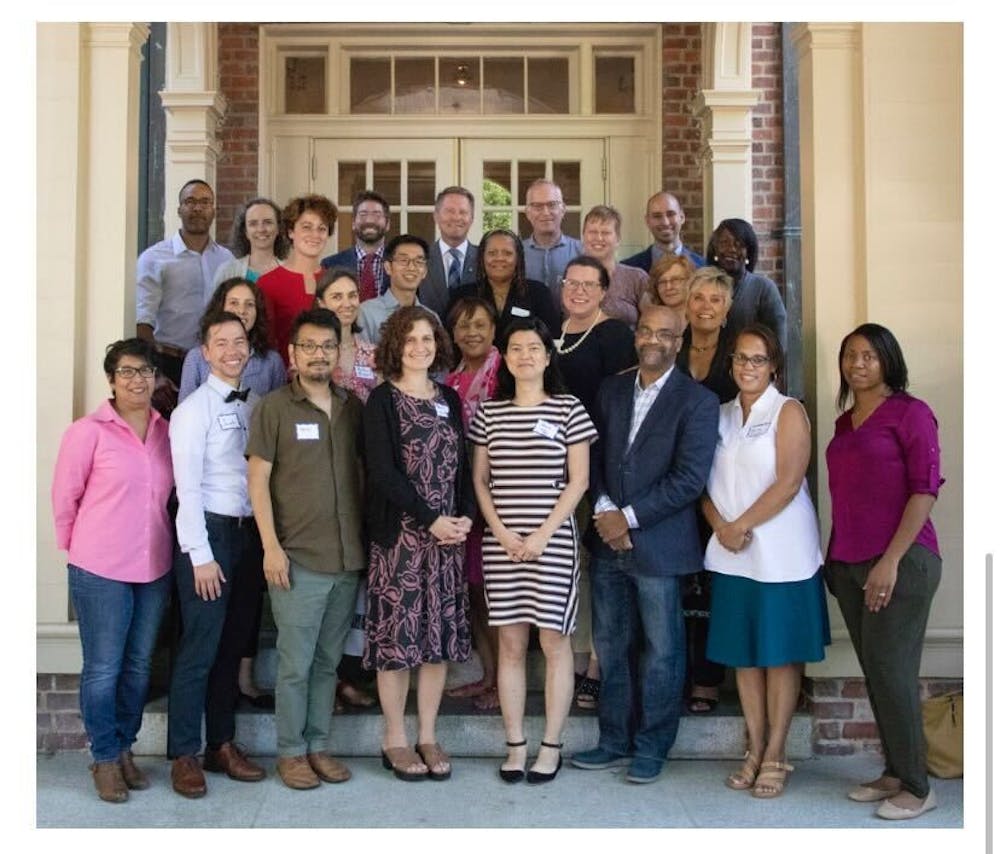Sarah Mills, who completed the program in 2019 and is now an assistant professor in the Department of Health Behavior of the Gillings School of Global Public Health, said the cohort aspect was one of the biggest advantages she noticed during her time in the program.
“Being a postdoc, if you're not a part of a cohort or group, can be a little lonely,” Mills said. “And it's really nice being able to be around other faculty of color and talk with them to hear about what they're going through and get tips and recommendations.”
Forty of the fellows from the program are on the current faculty at UNC, according to UNC Media Relations. Half of those faculty members finished their postdoctoral fellowships in 2015 or later.
Of the 204 current or graduated fellows since the program's start, 69 were hired into tenure-track faculty positions.
Part of the program’s features involve interactions with these former postdocs who are still at the University, Julian Rucker, a current postdoctoral fellow in the Department of Psychology and Neuroscience, said.
“To see the possibilities for your future self is something that, as a scholar of color, as a Black scholar, you cherish those models,” Rucker said. “You cherish those mentors, because you don't come across as many as you should, to be quite frank.”
Supporting faculty of color
Of the 4,111 faculty members employed at UNC in fall 2021, 234 were Black or African American, 414 were Asian, 202 were Hispanic and 15 were American Indian or Alaskan Native, according to data from the UNC Office of Institutional Research & Assessment. About 70 percent — almost 3,000 faculty members — were white.
The University has historically been criticized for undervaluing its Black, Indigenous and other faculty of color and for failing to recruit and retain them. This issue was central to community conversations surrounding the UNC Board of Trustees' initial failure to grant tenure to Pulitzer Prize-winning journalist Nikole Hannah-Jones over the summer.
Frey said the postdoctoral program seems like the only funded way the University is willing to recruit Black, Indigenous and other faculty of color.
“Even though we have a new dean for diversity, equity and inclusion, that really doesn't seem to be yielding the kinds of support structures that would really be conducive to BIPOC faculty continuing to do quality work and have good lives here,” Frey said.
Executive Vice Chancellor and Provost Chris Clemens said in a statement that recruiting, retaining and promoting historically underrepresented faculty is a University priority.
To get the day's news and headlines in your inbox each morning, sign up for our email newsletters.
“We are proud of the Carolina Postdoctoral Program for Faculty Diversity’s nearly 40-year track record as a national model for these efforts,” the statement said. “But our work is not finished. We want to build a culture that attracts and supports a diverse and talented faculty; that advances them as future academic leaders; and that fosters a sense of belonging.”
Looking forward
Ganga Bey, a current postdoctoral fellow in the Gillings School's Department of Epidemiology, said she thinks the program addresses many of the issues that may keep faculty of color from continuing in academia and at UNC.
“I feel like there's such a support, not only for me as a Black woman and recognizing that I have unique challenges in academia, but that people are genuinely interested in the work that I'm doing,” Bey said of her colleagues in the epidemiology department. “They see value in it.”
Rucker said that it’s hard to deny the successes of the program as a template for bringing in faculty of color and creating an interdisciplinary community of scholars of color.
Fike echoed this sentiment, saying that the program helps diversify what is being taught in classrooms and what is emphasized to students.
“It's not only bringing in people who are diverse, but it's diversifying the perspectives that are present, diversifying the methods and the approaches, the way that people do their work,” Fike said.
But Mills said programs like the Carolina Postdoctoral Program for Faculty Diversity can’t be the only solution.
“These types of programs are really critical to there being change in what faculty at universities look like,” she said. “And I don't think just these programs alone are enough.”
@hannahgracerose
university@dailytarheel.com
CORRECTION: An earlier version of this article incorrectly stated the year that Sarah Mills completed the Carolina Postdoctoral Program for Faculty Diversity. She finished in 2019. The Daily Tar Heel apologies for this error.




